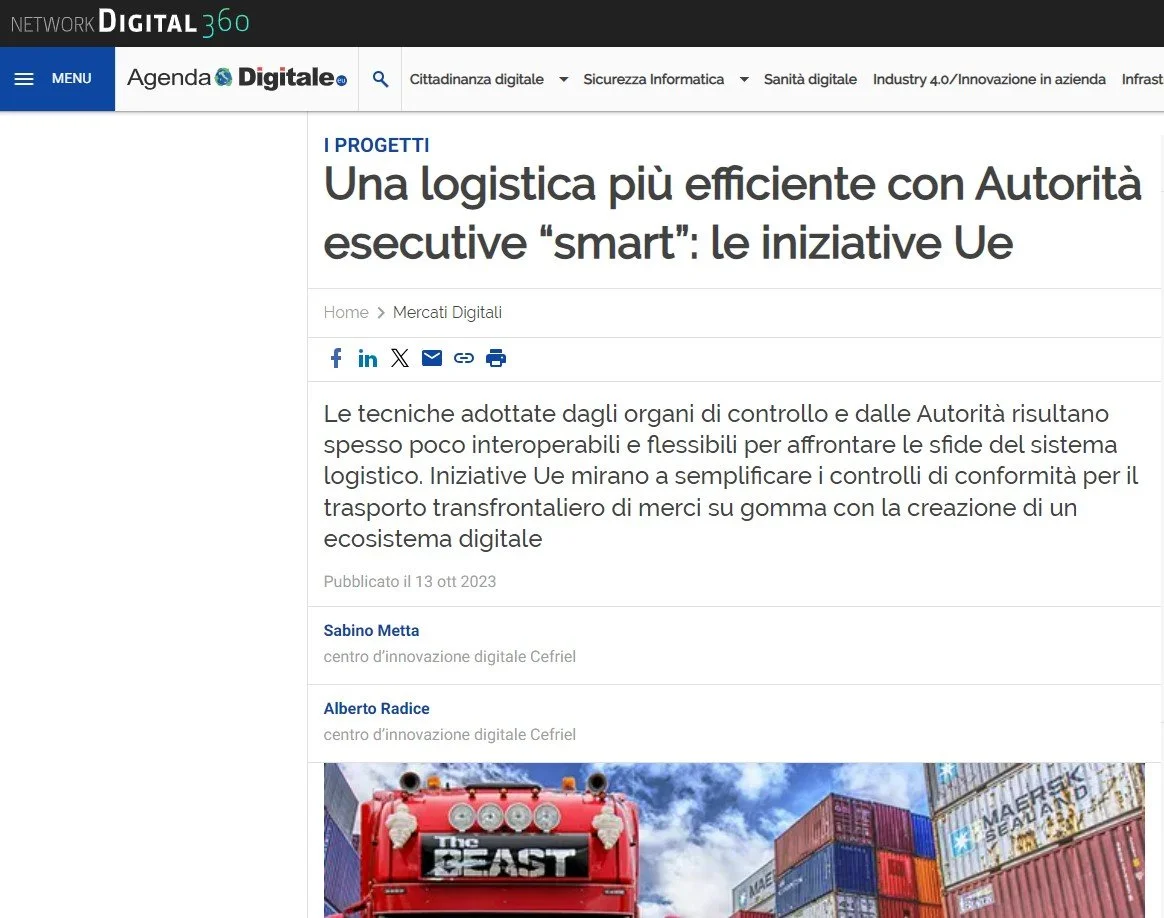More efficient logistics with "smart" executive authorities: the EU initiatives
Screenshot of the news article published in Italian in the Agenda Digitale magazine on 13 October 2023.
Techniques adopted by control bodies and authorities are often lacking in interoperability and flexibility to address the challenges of the logistics system. EU initiatives aim to simplify compliance checks for cross-border trucking with the creation of a digital ecosystem.
Digitization and information technology can support road transport law enforcement. The shift from paper to electronic documents, from random to targeted checks, is a great opportunity for both businesses and authorities to gain efficiency and transparency, reduce administrative burden and costs.
Digitizing information about the "controlled" (driver, vehicle, operator, load), ensuring reliable real-time data access and secure data exchange, and introducing automated checks and analytical processes are key to creating modern road transport. Such a highly digitized and automated enforcement system would make checks much more efficient (better use of time and resources for Authorities, operators, and drivers), effective (better targeting of checks to the "controlled" that carry the risk of non-compliance, easier detection of infractions/failures), and consistent (thanks to common computational algorithms and automated processes for downloading, transferring, and processing data).
Such a system is the aim of the KEYSTONE project, funded by the European Commission. Before delving into its goals, let's take stock of the state of the art in freight transport and European initiatives in the field.


